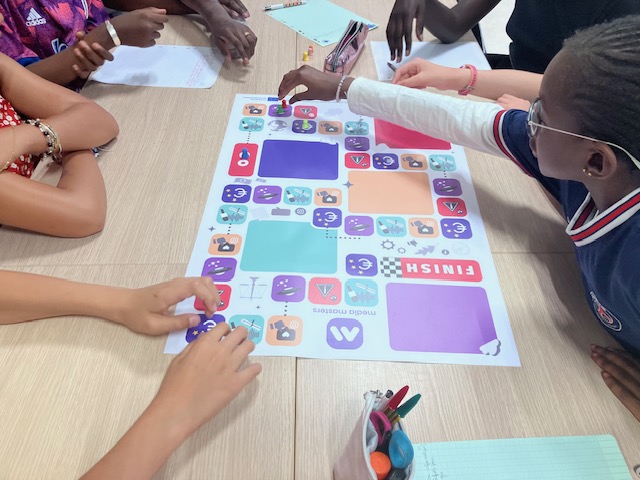According to Standard Eurobarometer 102 (Autumn 2024), 82% of Europeans consider fake news to be a threat to democracy, and 77% believe it to be a problem in their own country 1. Young people, who are turning away from traditional media in favour of social networks (TikTok, Snapchat, Telegram), are not immune. According to a survey conducted by the European Parliament at the end of 2024, 76% of young people aged 16 to 30 say they have already been confronted with misinformation or deliberately false information (2).
Furthermore, although the European Union is particularly targeted by fake news, which denigrates its institutions and governments, particularly in the context of electoral interference, it is also taking action to combat it (code of practice against disinformation, European regulation on digital services, regulation on artificial intelligence, etc.). All of this justifies the implementation of prevention and education measures targeted at young people at European level.
As part of the European Media Masters – Enhancing Media Literacy project, Voxeurop organised two workshops in June 2025 for Year 7 pupils at the Françoise Héritier secondary school in Noisy-le-Sec, Seine-Saint-Denis (93). The aim of these events was to strengthen young people's critical thinking skills in the face of disinformation and to raise their awareness of the European Union's role in combating this phenomenon. Similar events were organised simultaneously by the project partners in Italy, Bulgaria, Greece, Slovenia, Croatia and Spain.
Workshops both fun and educational
The workshops included a theoretical presentation (with the viewing and analysis of several videos), a debate on fake news, a quiz on false information about the European Union and, finally, a collaborative board game enhanced by a digital application.
The pupils were enthusiastic during the game sessions. According to the satisfaction questionnaire they completed at the end of the workshop, the majority of them found that the workshop and the game helped them to better understand the issue of fake news and how to protect themselves from it.
A promising tool for media literacy
The two workshops organised using an adapted version of the board game also provided an opportunity to observe, test and analyse the game in a real-life environment and teach teenagers how to avoid falling into the traps of fake news. It also gave them the tools to distinguish between truth and falsehood and enriched their knowledge of Europe in general.
By working to build a more aware, critical and resilient youth in the face of information manipulation, the Media Masters project is fully in line with a European citizenship education approach, promoting a stronger, more inclusive and informed democracy.
Funded by the European Union. However, the views and opinions expressed are those of the author(s) alone and do not necessarily reflect those of the European Union or the European Education and Culture Executive Agency (EACEA). Neither the European Union nor the EACEA can be held responsible for them.

Do you like our work?
Help multilingual European journalism to thrive, without ads or paywalls. Your one-off or regular support will keep our newsroom independent. Thank you!
















